Yesterday I went to a seminar on planning for the CGIAR Research Program on Aquatic Agricultural Systems (AAS). About a quarter of the presentation was on approaches to gender.
Two things stood out to me:
First, I understand the history that has led to this focus on gender as the central social theme in scientific programs, but if you look at it objectively, it is quite weird – we structure our programs around something that, while it is relevant to the science in some contexts, is central in very few.
Population growth, on the other hand, is completely central to any discussion of either food security or environment.
Overconsumption and overpopulation underlie every environmental problem we face today.
-Jacques Cousteau
The population of Uganda in 1950 was about 6 million. It is now over 35 million. The projection for 2050 is 100 million.
What if we started using population as our central social theme, instead of gender? What if we put the same effort into structuring programs that raised awareness of and changed attitudes to the impact of population growth on environment and livelihoods?
Would it change what we do?
Second, it is interesting that we seem to have evolved an understanding in CGIAR that “gender” actually refers to a much broader set of concerns relating to vulnerable groups and equity more generally. But I am reasonably certain that the nuance has slipped past the rest of the world, and when we say “gender” they hear “women vs men”. So in terms of communicating what we are doing to our partners and the public, we have a fairly significant gap in understanding. We need a new word. How about we say what we actually mean, and use “equity”?



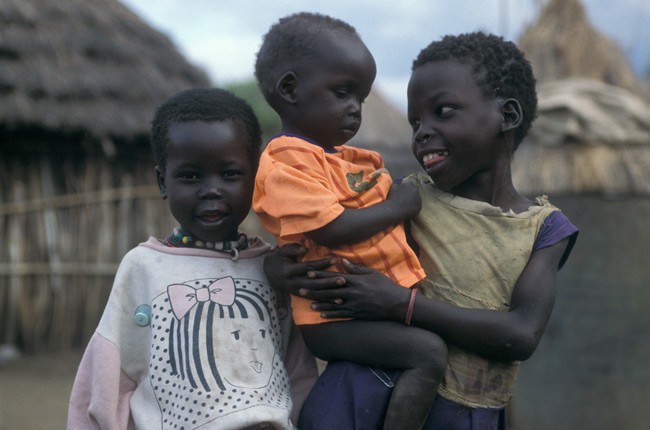
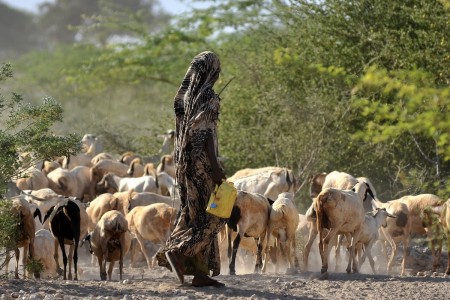

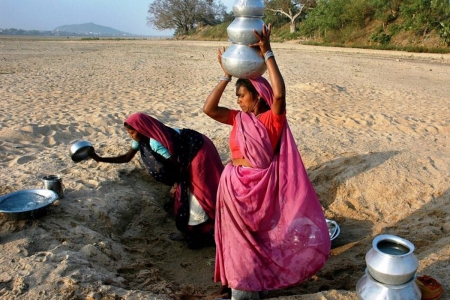

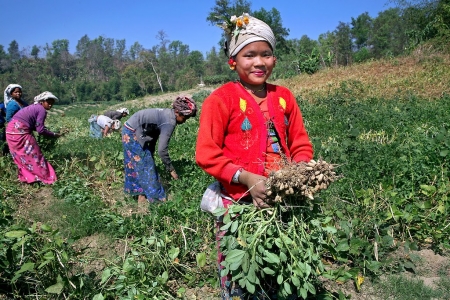



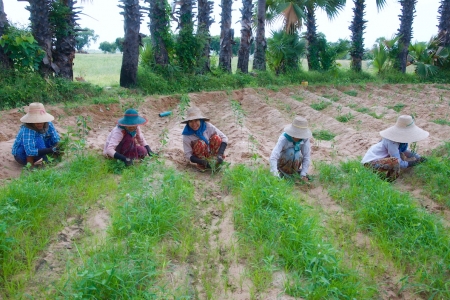
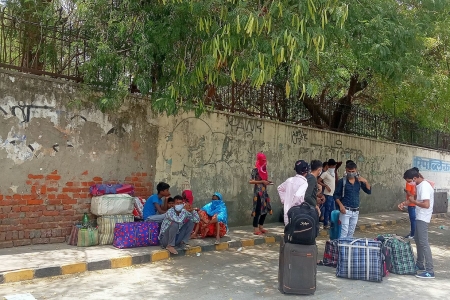




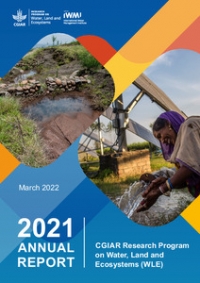
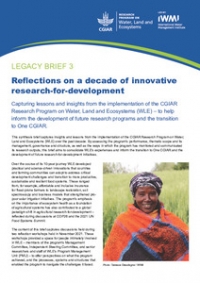
Comments
The best way to reduce overpopulation is to empower women (Amartya Sen). He also claims that famines are caused by corruption not lack of food.
Gender is beyond meaning indeed. What about equality (an outcome) as opposed to equity (a quality of the system). Since we need equitable inequalities of opportunity to achieve equality of outcome, we might as well strive for the latter even though it will remain unattainable.
I have to agree. The concept of equity or better still, unity, is lost in the clamour of those who would gain a free ride. If attention was given to unity - striving to remove "difference" instead of trying to highlight difference in order to advance one over another - then injustice would decline.
Also agree that population is a far greater and more pressing issue that just never gets the attention it needs.
Yes, population should be on the agenda but maybe for a different reason then we usually think. See this article from Foreign Policy
https://www.foreignpolicy.com/articles/2010/10/11/think_again_global_aging
Growth of mega cities worldwide is another mega trend with important implications for agricultural production and consumption
I really think it would be more useful to think and speak in terms of a 'both/and', rather than an 'either/or' scenario. Population versus gender is a false dichotomy.
Gender analysis is essential to any population research, and certainly to investigating issues in agriculture, food security, and climate change. There should be a systematic, intersectional analysis of population issues, with disaggregation of all data by sex, age, and other key diversity variables for a given population and context.
Gender and/or population, what exactly is the problem we are trying to address? Where is the intersection between gender and agricultural water? In many places it's land rights, which will require advocacy. With population I suppose it might be nutrition. Without a clear objective we are just spinning our wheels and generating research of little or no practical value.
Thanks Terry and Robyn for this piece which comes after a few days of discussing poverty, gender and other matters in an ESS&R workshop. The term 'equity' I feel is far more appropriate than 'gender' as it is inclusive and does widen the lens from one that may be rather narrow.
Good comments all. I like to use the phrase "gender and social analysis" which includes other forms of social marginalization such as class, caste, ethnicity, location, etc..I pull gender out although it is one of the social categories because it is still the most pervasive and difficult form of social disadvantage to address.
It is interesting how you have observed the impact a new paradigm can have. I have nothing else to add to this topic other the need to further understand it. I like this one Robyn.
For me with a background experience working in population and development issues as once I was woking as a Population and Family Life Education Expert for Ethiopian Population Office ( Then in 2002, Population Office was under the Ministry of Economic Development) I spent a few years researching, learning and also scrutinizing things related to demography and socio-economic development. Gender was one of the central componenet of the population unit operation as it is the major driver to promote reproductive health and famly planning related issuesd. Unfortunatelly, if you going through the litrature and also if you encounter people from different socio-culutral background and raise issue on population, you will be immediatelly recognise that it is much more complicated as it could be ideaologically and politically misinterpreted. There are strong religious, culutral and political resistance to consider population growth issue in terms of its implication to bring balanced soci-economic development specially in the developing part of the world. When you come to gender it is also a generic term which alos include social exclusion and inequalty among groups and communities. It would be much more palatable if we put such social dimention as " Gender and Social Exclusion Analysis" to make it broader. If you want to improve the situation related to unprecedents population growth, Projects and Research institutions should includ Family Life Education, Gender and Social Marginilization/Exclusion in their project/programme Framing or focus. We have to reach into the heart of the community and the family if we really want to bring change in the attitutde of people particualrly to support them to bring a productive memeber into the fold of their amidest. It is a very delicate issue to start advising some one to stop bearing children but it is easier to start discussion on major chnages occuring in the village for the last 5 or 10 years interms of social services, economic opportunities and constraints, in schooling children, on crime rate, on the intergenerational interaction in the family and in the community at large. Then... also to get proposals from the same source on possible solutions and remedies. The solution will come only if that same community shares the view that there is a new trend of pupulation preasure with negative impact on the well being of the coummunity in general. It is visible in most parts of Africa that urban centres are engulfed with a new generation of daily labourers who left the country side in hundrds and thousands. We have already start feeling the population preasure everywhere but what is the root cause of that. Do we really have the time, the mind set and the attitude to go down and bring research and development agends from the ground. There are a number of such issue which needs a concerted effort of many stakeholders ( Donors, Scientists from different fields). Otherwise, I am sure you have raised a very important issue and we need to work that particulalry on how we could be bale to bring those social issues at the core of development research and intervention. Cordially,
I worked as a women in development specialist in the early 1980s and then switched to a more comprehensive approach, in which I tried to include gender. For the past three years, I've been focusing again on gender specifically, because I found that without mentioning it directly, such a focus very easily disappears from view. I do agree that including other marginalized groups is a good idea, paying more attention to the male half of gender (and interactions between genders) are also important; and it's time to attend to the division of domestic labour if we really want change.
I strongly believe that addressing population explicitly has dual advantages, if conducted within a participatory approach. It contributes to empowering women (both men and women if done well)---freeing women's time from reproduction to be used in income generation, education, community service, self-actualization, etc; and it contributes to population stabilization (there's a huge unmet demand out there for family planning! The fact that we're not addressing it quite simply is a crime, for individuals and for the earth).
Issues such as gender and population become central to our programs in most contexts, when science is not just about satisfying academic curiosity, but about achieving developmental outcomes and impacts. I appreciate Jennifer’s comments that this is not an either/or situation. Both are important issues and as others have highlighted they are closely linked. One cannot avoid talking about gender and associated social norms while dealing with population growth.
As it has rightly been pointed out, gender has come to be equated with women. There have been significant conceptual shifts from Women In Development (WID) to Gender and Development (GAD) but the agricultural research and development practice has not kept pace with this thinking.
However, the focus on women is not completely misplaced. Even if we prefer to focus on equity, it is women who are disproportionately represented among the poorest and most marginalised. Women account for two thirds of the 1.4 billion people living in extreme poverty. Women make up 64 percent of the 774 million illiterate adults in the world (https://www.womendeliver.org/knowledge-center/facts-figures/gender-equity/). Achieving the developmental goals we aspire to is not possible if gender inequalities persist.
Gender is not about men vs women, but it is about women and men, boys and girls and the social relations that govern their interactions. Multiple social relations exist between people and these are shaped by the social norms and they result in positioning individuals and groups relative to each other. Gender relations, are a subset of such social relations and are influenced by gender roles and responsibilities and claims over resources and rights; they define men’s and women’s relative social positions and therefore gender inequality in a specific time and place (Kabeer 1994).
Poverty arises out of unequal social relations. The poor, especially poor women, are often excluded from access and ownership of resources, and depend upon relationships of patronage or dependency for resources. Gender analysis is not just about understanding women’s issues or their roles, it involves looking at how institutions create and reproduce inequalities.
Experience shows that agricultural, environmental and related policies and programmes (including population) do not differentiate between men and women. They often fail to recognize the differences between men’s and women’s work, knowledge, contributions and needs. Only 20% of young women in both rural and urban areas said that the decision on how many children to have was in their hands (World Bank, 2013. On norms and agency: Conversations about gender equality. https://www.rockefellerfoundation.org/our-work/current-work/celebrating-i... ; https://web.worldbank.org/WBSITE/EXTERNAL/TOPICS/EXTSDNET/0,,contentMDK:2... ). This has significant consequences for environmental sustainability, poverty as well as for gender equality.
Equality of opportunities does not always lead to equality of outcomes, where the starting points are widely different. As Carol pointed out, if we subsume the focus on gender under equity this will transmit wrong signals that we have achieved equality or that it is less of a concern and might result in lesser allocation of resources and commitment. So, we need both. Indeed, the focus should be on the poorest and most marginalised women and girls.
Thought I'd share this article which I just came across.
https://www.guardian.co.uk/global-development/poverty-matters/2013/mar/05...
Not alternatives, but both are big in the set of 'causes of causes' that massively condition much of development.
We ignored gender for too long and now are ignoring population.
I agree addressing population is political, sensitive and upsetting for some, but so is gender!
Its not just the numbers: the UK has double the population of Uganda and is doing ok. More important are growth rates, opportunities, natural resource base;
Africa, with much lower density is facing more of a crisis than Asia.
Mission creep...
That's what we were accused of when we did an evaluation of the impact of agricultural research on poverty (https://www.ifpri.org/publication/agricultural-research-livelihoods-and-p...). I remember one of the "old guard" who thought the CGIAR was just supposed to breef for "more food" laughing and saying "what's next--happiness?" (I laugh at that now when I see the very serious work being done on happiness indices.)
Fortunately, the CGIAR has expanded in to looking at poverty, and now agriculture/nutrition/health. But in each case we are able to show strong links between that and agriculture.
I very much agree that population growth is a very serious issue, and a key part of the food security equation. But there are a number of other organizations that address population growth. The question is whether there are links to agriculture, that make it worthwhile for the CGIAR to engage. There may be--but that is a serious matter for discussion. And I would argue that the CGIAR addressing population growth cannot be INSTEAD of addressing gender in agriculture--all the research I've ever seen suggests that women's empowerment is key for reducing birth rates.
But with any kind of "mission creep", it is OK if there is a clear rationale, AND additional resources. At present we are starting to get some significant resources for addressing gender. I agree with Beth Miller that we need "gender and social analysis"--gender can even be an entry point for getting people to look at further social analysis. But what worries me is that if we are now expected to achieve "equity" or "equality" across all different dimensions, we need a LOT more resources--human as well as financial. Please, plese, please, don't put responsibility for that on the backs of the (already overloaded) "gender specialists" without providing for substantially greater resources.